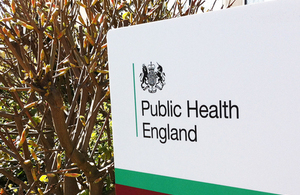Public Health England Leverages DDN Cloud and Big Storage
To accelerate sequencing service time to results from days to hours
This is a Press Release edited by StorageNewsletter.com on June 17, 2015 at 2:41 pmPublic Health England (PHE) is pioneering a next-generation, centralized sequencing service to generate and analyze the near-complete genetic code of pathogenic bacteria and viruses, storing the data generated on DataDirect Networks, Inc.’s SFA storage engine in combination with the company’s EXAScaler Lustre File System Appliance and WOS Object Storage platform.
In order to support the advanced, data-intensive demands of the new technologies that make whole-genome sequencing of pathogens possible, PHE required a storage solution that could scale across all tiers of storage to better support public health analyses and interventions. In particular, PHE sought a solution to help public health stakeholders more characterize harmful microbes and respond to infectious disease outbreaks.
PHE turned to DDN’s cloud and big storage platforms to help support the heavy I/O and data analysis requirements of the organization, where streamlining access to data and accelerating time to results is critical. By taking advantage of DDN’s Lustre expertise, PHE deployed a performance parallel file system and can process up to 192 bacterial samples in the same time it used to take to process 12 samples. Moreover, DDN’s massively parallel I/O capabilities enable PHE to turn around results to its customers in hours, which is critical for the turnaround time required by customers, such as hospitals.
Additionally, PHE is leveraging the versatility of the WOS platform to bolster data resiliency by replicating data between the organization’s primary sites.
PHE’s Next-Generation Sequencing Processing and Analysis Service (NGSS) will be among the first public health services in the world to offer a routine service for stakeholders to perform whole genome analysis for identification, analysis and characterization of bacteria and viruses, including salmonella, MRSA, HIV and influenza.
DDN’s commitment to the scientific community was reinforced by joining the global alliance for Genomics and Health; DDN currently provides the storage for more than one-third of the world’s top sequencing companies.
DDN Streamlines Management of Scientific Data Lifecycle
DDN’s ability to integrate with iRODS will let PHE streamline the data lifecycle for both internal and external scientists who need to ingest, process, analyze, store, share and protect vital genomics research. With integrated iRODS capabilities, researchers can find data regardless of where it’s physically located by performing an indexed query of user-specified metadata across petabytes of both file and object data.
With the WOS platform, PHE also will be able to provide an active archive where researchers can access geographically dispersed and replicated file data to make it easy for researchers worldwide to access data long-term for further analysis or publication. Additionally, PHE is better positioned to meet the stringent demands of its bioinformatics workflows for variant analysis, mutation detection and de novo assembly.















 Subscribe to our free daily newsletter
Subscribe to our free daily newsletter

